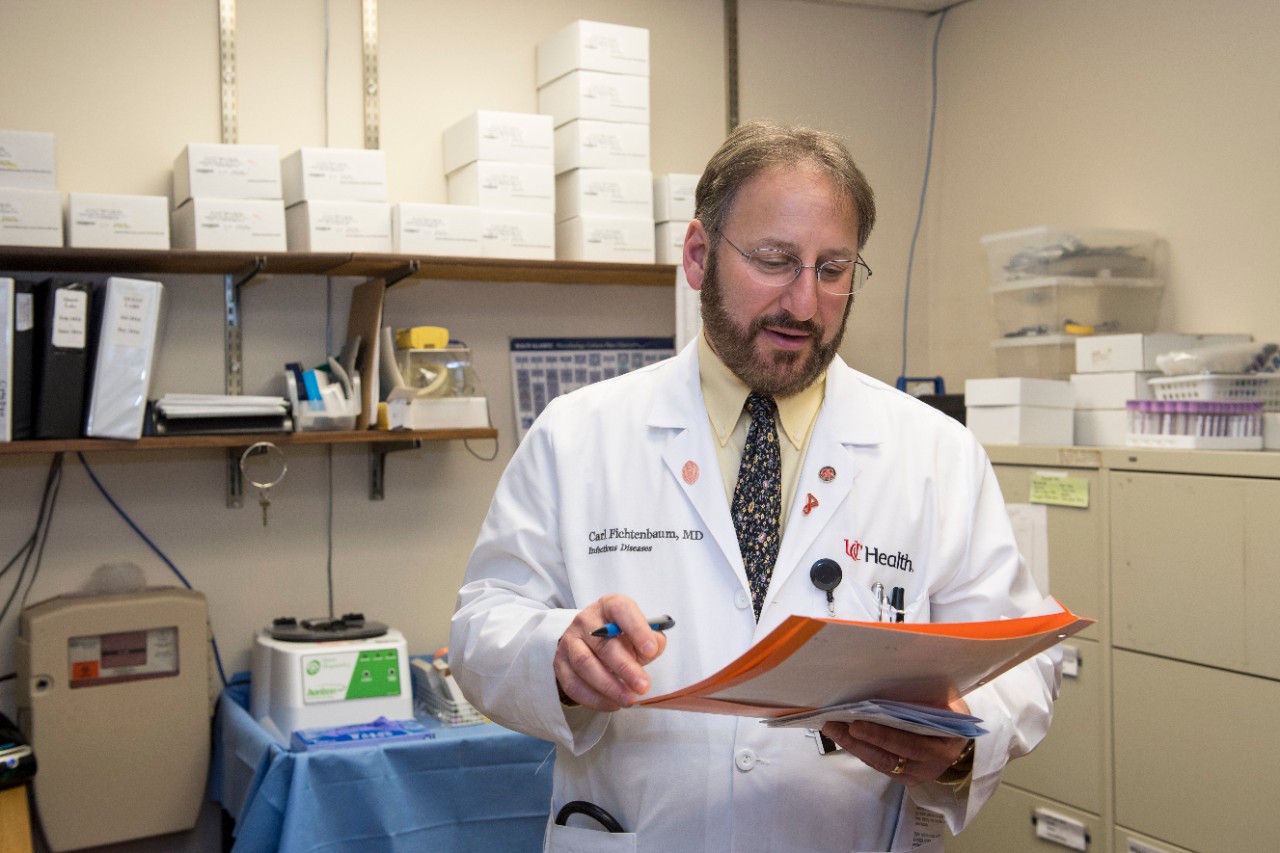
USA Today: How and why coronavirus makes you sick
UC expert explains the mechanics of how people develop COVID-19
USA Today turned to Dr. Carl Fichtenbaum of the UC Division of Infectious Diseases as the lone medical source for a story explaining how the coronavirus spreads from person to person and physically impacts people who develop COVID-19.

Illustration from USA Today showing how the coronavirus infects people. Photo credit/Kevin Necessary/Cincinnati Enquirer
Dr. Fichtenbaum told USA Today the virus is spread when an infected person expels tiny droplets from the mouth, throat or lungs, usually during a cough or sneeze.
“Viruses need something else’s machinery to help generate them,” Fichtenbaum says. “They’re what we call a parasite.”
Fichtenbaum said the reason some people with COVID-19 lose their sense of smell is because the virus somehow interferes with the olfactory nerve, which transmits sensory data to the brain and is responsible for the sense of smell.
Read the article here.
Featured image at top Dr. Carl Fichtenbaum/Photo credit/Colleen Kelley/UC Creative Services + Brand
Find the latest details related to coronavirus disease 2019 (covid-19) on the Centers for Disease Control and Prevention (CDC) website, and follow UC's latest information with regard to the virus.
Related Stories
Blood Cancer Healing Center realizes vision of comprehensive care
February 19, 2026
With the opening of research laboratories and the UC Osher Wellness Suite and Learning Kitchen, the University of Cincinnati Cancer Center’s Blood Cancer Healing Center has brought its full mission to life as a comprehensive blood cancer hub.
Scientists: Slushy snowmelt isn’t just a nuisance
February 13, 2026
Slushy snowmelt isn’t just a nuisance, scientists say. It can send a toxic flood of road salt, sand and car exhaust, as well as dog poop, into rivers and streams, The University of Cincinnati College of Medicine's Yevgen Nazarenko, PhD, assistant professor of environmental and industrial hygiene in the Department of Environmental and Public Health Sciences, recently told The New York Times that research has shined a light on how pollution from all sorts of vehicles — planes, cars, trucks — can get trapped in the snow.
Can Cincinnati become a Blue Zone?
February 12, 2026
Under the Blue Zones Project umbrella, 75 U.S. cities currently are working on group diet and exercise programs while also changing the community’s culture, so that residents are encouraged to make healthy choices. Cincinnati is not an official Blue Zones Project city yet, but Florence Rothenberg, MD, adjunct professor of cardiology at the University of Cincinnati College of Medicine and clinical cardiologist at the Cincinnati VA Medical Center, is leading one public effort to encourage a Blue Zone lifestyle. Her work was recently featured in Cincinnati Magazine.
